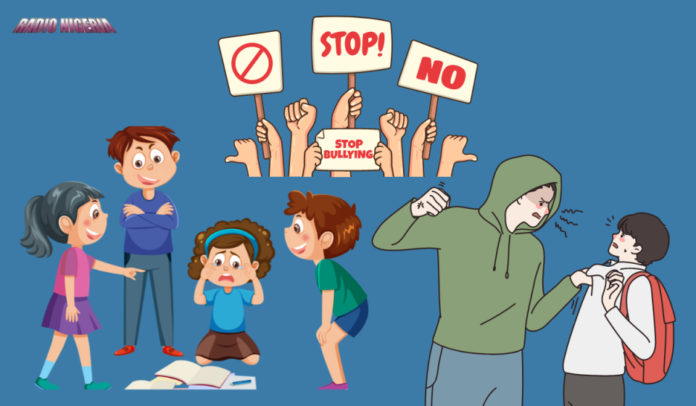By Juliet Onwurah and Annabel Nwachukwu
Bullying is a global challenge within the education system. From primary schools to tertiary levels of education, pupils and students are often subjected to various forms of bullying, including physical violence, verbal abuse, social exclusion, and online harassment.
The American Psychological Association describes bullying as aggressive behaviour in which someone intentionally and repeatedly causes another person injury or discomfort. It often reflects an imbalance of power or strength.”
Bullying at Lead Bristish School
Recently, a video surfaced online showing a female student from Lead British School, Abuja, being bullied by another student within the school premises.
In the video, the perpetrator repeatedly slapped the victim while others looked on.
This incident prompted reactions from Nigerians. Many condemned the act and urged the school’s administration to conduct a thorough investigation.
In a prompt response, the school authorities assured that appropriate disciplinary actions would be taken against the perpetrator. Also, Uju Ohanenye, the Minister of Women Affairs, intervened and ordered the closure of the school for a period of three days.
This incident has brought to the fore the urgent need to curb these kinds of behaviours in the nation’s educational system.
One in three students gets bullied
One of the most concerning aspects of bullying is its prevalence. A report by United Nations Educational, Scientific and Cultural Organization (UNESCO) shows almost one out of every three students has been bullied by their peers at school.
A similar study by the Federal Ministry of Education and UNICEF also indicates that physical violence accounts for 85% of school victimisation, aside from other forms of bullying.
Despite numerous efforts to combat bullying, it continues to persist, highlighting the need for more comprehensive and effective strategies to address this issue.
Bullying has far-reaching consequences
Bullying does not only impact the victim’s emotional well-being but also disrupts the learning environment and can have long-term consequences for both the victim and the perpetrator. In severe cases, bullying has been linked to suicidal ideation and self-harm among victims.
Furthermore, bullies are more likely to engage in delinquent behaviour and have difficulty forming healthy relationships later in life.
Also, those who witness or condone bullying behaviour can desensitize bystanders to violence and contribute to a toxic school culture where such behaviour is normalized.
Addressing bullying requires multi-faceted approach
To effectively address bullying in schools, a multi-faceted approach is required. This includes implementing comprehensive anti-bullying policies that clearly define what constitutes bullying behaviour and outline the consequences for perpetrators.
Schools must prioritize educating students, teachers, and parents about the harmful effects of bullying and provide resources and support services for victims.
Fostering a positive school climate built on empathy, respect, and inclusivity is essential for preventing bullying. This can happen when schools actively monitor and address instances of bullying, provide victims with avenues to report incidents confidentially, and ensure swift and appropriate intervention.
Charity, they say, begins at home, therefore parents should encourage open communication with their children, providing a safe space for them to discuss any issues they may be facing at school.
Also, the government, through the relevant agencies, should collaborate with schools, parents, and community organizations to raise awareness about bullying and promote a culture of respect and inclusivity.



